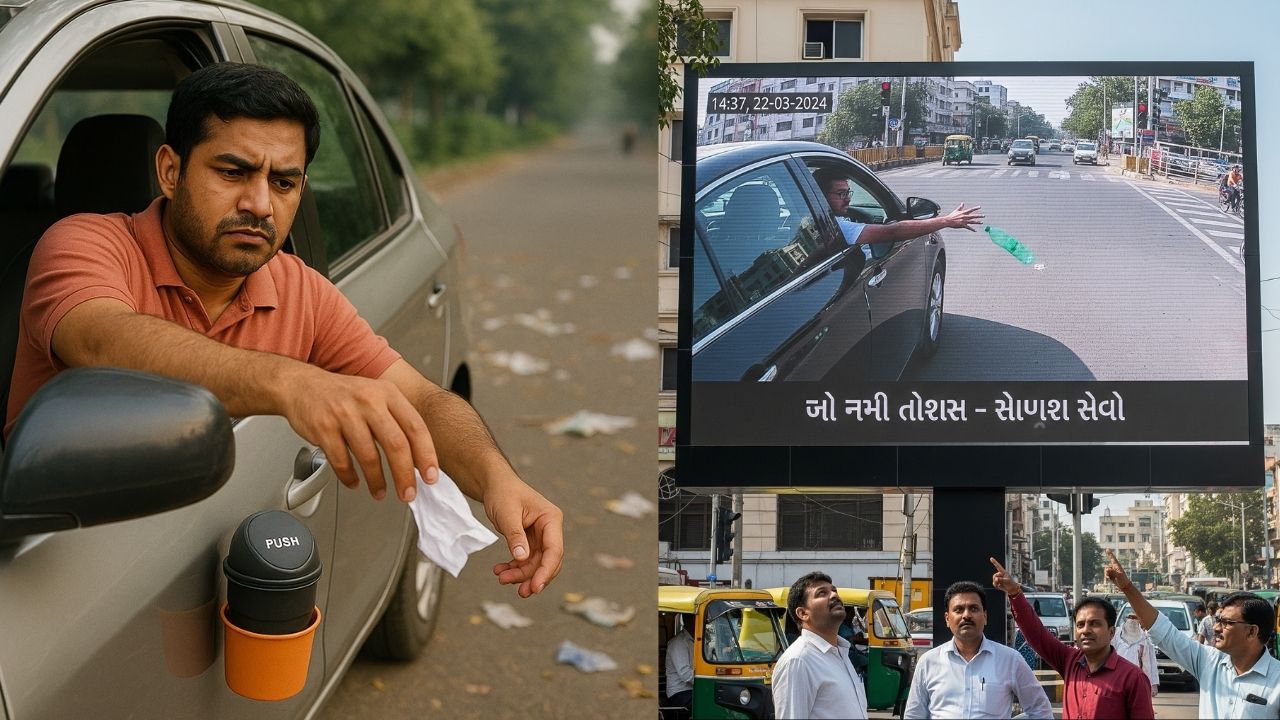If You Can Afford a Car, Why Not a Small Dustbin Inside? Public Littering Exposes Crisis in Civic Sense
Editor: Chandan M
Published on: July 30, 2025, 5:04 p.m.

Bangalore | As India crosses record-high automobile sales—over 41 lakh vehicles sold in FY 2024–25—the contrast between private comfort and public apathy has never been sharper. Across city roads, highways, and public parks, litter continues to accumulate, much of it tossed casually from within air-conditioned cars. This has reignited a basic yet powerful question among civic experts: If someone can afford a car worth ₹8 lakh or more, why not spend ₹200 on a small dustbin to keep the vehicle and surroundings clean? Despite the success of infrastructure campaigns like Swachh Bharat Abhiyan, India still generates over 62 million tonnes of waste every year, and a significant portion ends up on roadsides—courtesy of careless public behaviour. Civic Failures on Display Multiple municipal bodies have confirmed that a large share of urban litter comes from private vehicle users. A 2024 field study by the Delhi Urban Environment Collective revealed that over 65% of surveyed drivers admitted to discarding waste outside the vehicle, particularly food wrappers, tissue paper, and beverage bottles. In Vadodara, civic authorities launched a novel approach earlier this year: broadcasting CCTV footage of littering offenders on public LED displays. More than 500 violators were captured throwing garbage from vehicles, many of them well-off residents. Officials clarified that the aim was not humiliation, but to instill accountability. In Patiala, Punjab Cabinet Minister Ravjot Singh recently warned of action against repeat littering offenses after piles of unattended garbage were found across town—some traced back to vehicle-based dumping. Not a Matter of Wealth, But Mindset Urban governance experts point out that the issue isn’t affordability—it’s attitude. Mini car dustbins are available in the Indian market for as little as ₹150–₹300, designed to hang behind seats or fit in cup holders. Yet, they remain a niche purchase. “Littering is a symptom of a deeper civic failure. We educate people to earn, not to coexist,” says Dr. Kavita Mishra, a civic behavior researcher at the Centre for Policy Studies. “Until public cleanliness is seen as a shared duty, no number of campaigns will fix this.” The Policy and Enforcement Gap While municipal laws prohibit littering, enforcement remains inconsistent. Most fines go unpaid, and field officers are rarely equipped or supported to penalize offenders—especially in private vehicles. Unlike countries such as Singapore, where fines are immediate and steep, India still relies on awareness more than deterrence. Furthermore, vehicle dealerships and road safety programs rarely promote the idea of a car bin as a standard accessory, despite the obvious environmental benefit. A Simple Solution with Big Impact Small, inexpensive dustbins—widely available online and in car accessory shops—can help reduce the litter problem drastically if adopted at scale. Experts recommend: Integrating dustbins into standard car kits at the time of purchase. Public campaigns at toll booths and petrol stations to promote in-car hygiene. Strict enforcement with on-the-spot challans for littering from vehicles. School-level civic education that goes beyond textbooks to real-world responsibility. Conclusion Public cleanliness begins with private responsibility. As India modernizes, civic sense must keep pace with consumer wealth. A dustbin in the car may seem small—but it symbolizes a big step toward a cleaner, more responsible nation.